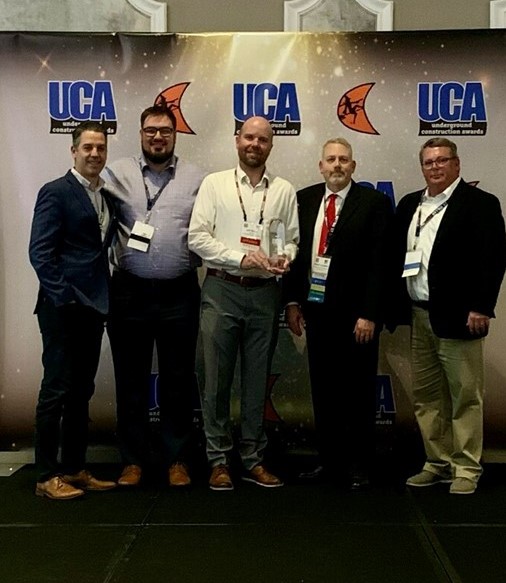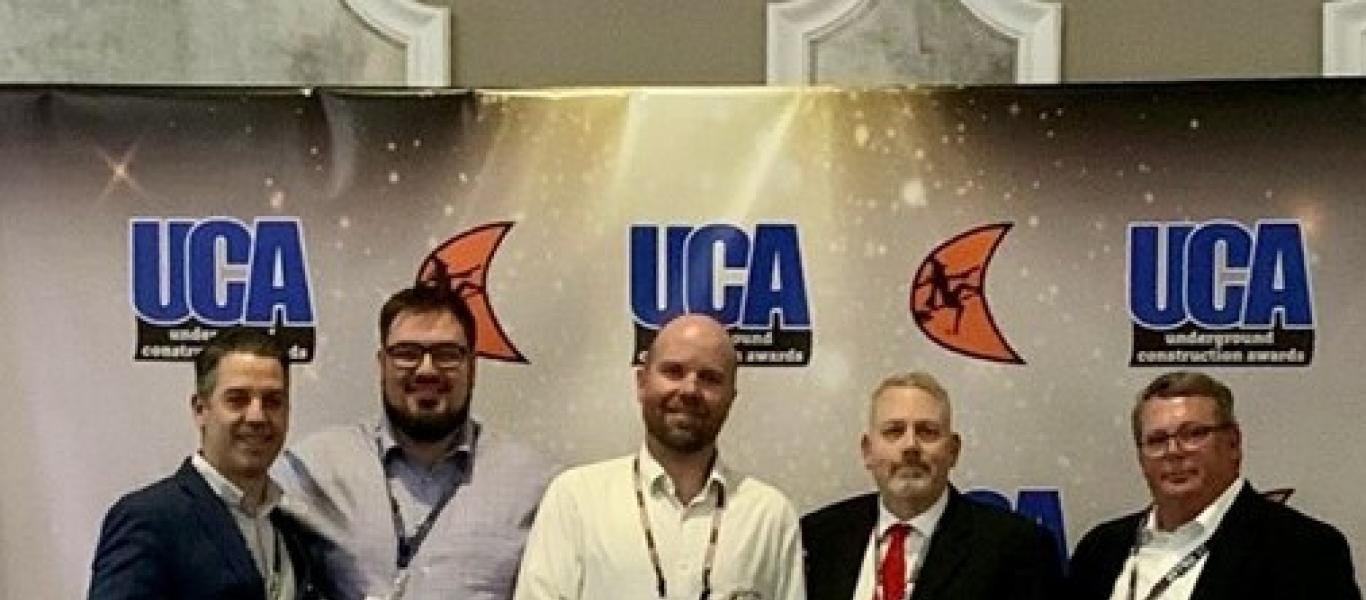- GE Research is partnering with Warren Environmental and Garver to develop the PLUTO (PipeLine Underground Trenchless Overhaul) system, through the Advanced Research Project Agency for Energy’s (ARPA-E) REPAIR initiative
- PLUTO is a ground-breaking robot that can internally rehabilitate existing pipeline without the extensive digging, cutting, and extraction that is typically required to replace aging pipes.
- PLUTO has the potential to slash the cost of pipe rehabilitation from an estimated $1-10 million per mile of pipeline that is typical for open cut replacement to as low as $200,000 to $500,000 per mile
- Would address up to 50% of all methane emissions leakage from pipelines by reaching the nation’s oldest and hardest-to-reach underground natural gas pipeline infrastructure
NISKAYUNA, NY – February 13, 2023 – Taking another big step toward revolutionizing the inspection and trenchless rehabilitation of underground natural gas pipelines, GE Research, together with epoxy manufacturer, Warren Environmental, and the engineering and environmental services firm, Garver, announced they are planning to conduct in-ground field tests with their newly developed PLUTO system, later this summer. This innovative system was just recognized as the “Emerging Technology of the Year” at the Underground Construction Awards presented at the 28th Annual Underground Construction Technology Conference taking place this week in Orlando, Florida.
The new system, dubbed PLUTO, after the mythic God of the Underworld, will act as both inspector and repairman to rehabilitate pipelines in some of the nation’s oldest and hardest- to- reach places that account for the vast majority of methane emissions from the overall gas pipeline infrastructure. The GE- led project is part of a comprehensive effort being supported and led by ARPA-E to improve pipeline replacement technologies through their REPAIR (Rapid Encapsulation of Pipelines Avoiding Intensive Replacement) initiative.
Alexander Duncan, Robotics Engineer and PLUTO System Project Leader at GE Research, said, “The PLUTO system is poised to revolutionize natural gas pipeline rehabilitation with a highly intelligent, state-of-the-art robotics-based solution that could reduce rehabilitation costs by a factor of 5-20X vs. conventional methods used today. At the same time, this new system could significantly reduce the carbon footprint of the overall pipeline infrastructure by more easily addressing the oldest, hardest-to-reach natural gas pipeline infrastructure that is believed to account for up to 50% of the methane emissions coming from these pipelines.”
Duncan noted that the minimally invasive PLUTO system allows for the flexibility of deploying SIPP (Sprayed-in-Place Pipe) over long distances and at varying diameters, from a single excavation. It can dynamically alter the new pipe’s thickness (up to 350 mils) in specific locations providing a truly customized repair without the hassle of pulling a custom liner in place. This is in contrast to CIPP (Cure-in-Place Pipe) liners, which need to be customized and manufactured in advance with the risk of kinking or tearing when being deployed. PLUTO manufactures new pipe, custom-to-fit, in place, all from a single dig site.
Brian Brandsetter, President, Warren Environmental, said, “Since our inception, Warren Environmental has always been focused on developing environmentally-safe epoxy products and providing innovative rehabilitation solutions to foster technological advancement in the coatings industry. Creating opportunities for research and development is a significant part of our rich history and our participation in ARPA-E’s REPAIR program is the perfect modern-day example. Our team is proud to be working with our great partners, GE Research and Garver, to develop the PLUTO system. PLUTO will offer a unique repair solution for pipe structures that lowers rehabilitation costs and saves time, while significantly reducing environmental impact. We are honored to have our work recognized by Underground Construction Technology in the 2023 Underground Construction Awards. Our selection in this year’s “Emerging Technology of the Year” award category confirms that the PLUTO team is on the right track to provide new technology that will be of great benefit as we strive to improve the world’s infrastructure.”
Jeff Maier, Infrastructure Practice Leader at Garver, said, “We are thrilled to come away with a win at the Underground Construction Awards in the Emerging Technology of the Year category. The PLUTO system features several technological advantages that have the potential to be game-changers for the spray-applied pipe lining sector, and for the trenchless rehabilitation industry in general. Our team is very proud of the accomplishments of this unique program and for what the future holds as the PLUTO system progresses towards commercialization.”

Caption: The PLUTO System team was presented with the "Emerging Technology of the Year Award" by Robert Carpenter, Director, UCT, during the 28th Annual Underground Construction Technology Conference in Orlando, Florida. Pictured (left to right) are: John Lizzi, Executive Leader, Robotics, at GE Research; Alex Duncan, Robotics Engineer at GE Research and PLUTO System Project Leader; Jeff Maier, Water Infrastructure Practice Leader, Garver; and Brian Brandstetter, President, Warren Environmental.
PLUTO System vs. Conventional Pipeline Rehabilitation Methods
Duncan explained that pipeline replacement today is a very tedious and costly process. Sections of steel and iron pipeline due for replacement typically must be dug out, removed, and then replaced with fresh new pipe. And as mentioned earlier, trenchless-based methods such as CIPP liners are used today as well, but they too face challenges with installation and the liners needing to be prefabricated. GE’s PLUTO System would dramatically streamline this process by deploying a highly dexterous, compliant robot that is capable of molding or forming new pipe from within the legacy pipe.
To perform this rehabilitation work, the robot itself conveys a ready supply of epoxy material through a spray head to form new pipe with the material applied inside the pipeline itself. The new pipe will provide a structural replacement that is designed to be independent of the host pipe and will have a service life exceeding 50 years.
The supply of epoxy material applied by GE’s robot is manufactured by Warren Environmental. And for the design of the spray head, GE’s robotics team was able to draw from decades of experience developing and deploying various thermal barrier and other coatings to protect jet engine and gas turbine components. In addition, Garver’s engineering and environmental design expertise in the gas transmission industry was critical to the overall effort.
The PLUTO System team is preparing to demonstrate their innovative trenchless inspection and rehabilitation method in a real- world in-ground pipeline testing and evaluation scenario this Summer.
About GE Research
GE Research is GE’s innovation powerhouse where research meets reality. We are a world-class team of scientific, engineering and marketing minds working at the intersection of physics and markets, physical and digital technologies, and across a broad set of industries to deliver world-changing innovations and capabilities for our customers. To learn more, visit our website at https://www.ge.com/research/.
We're here to solve your toughest problems.






